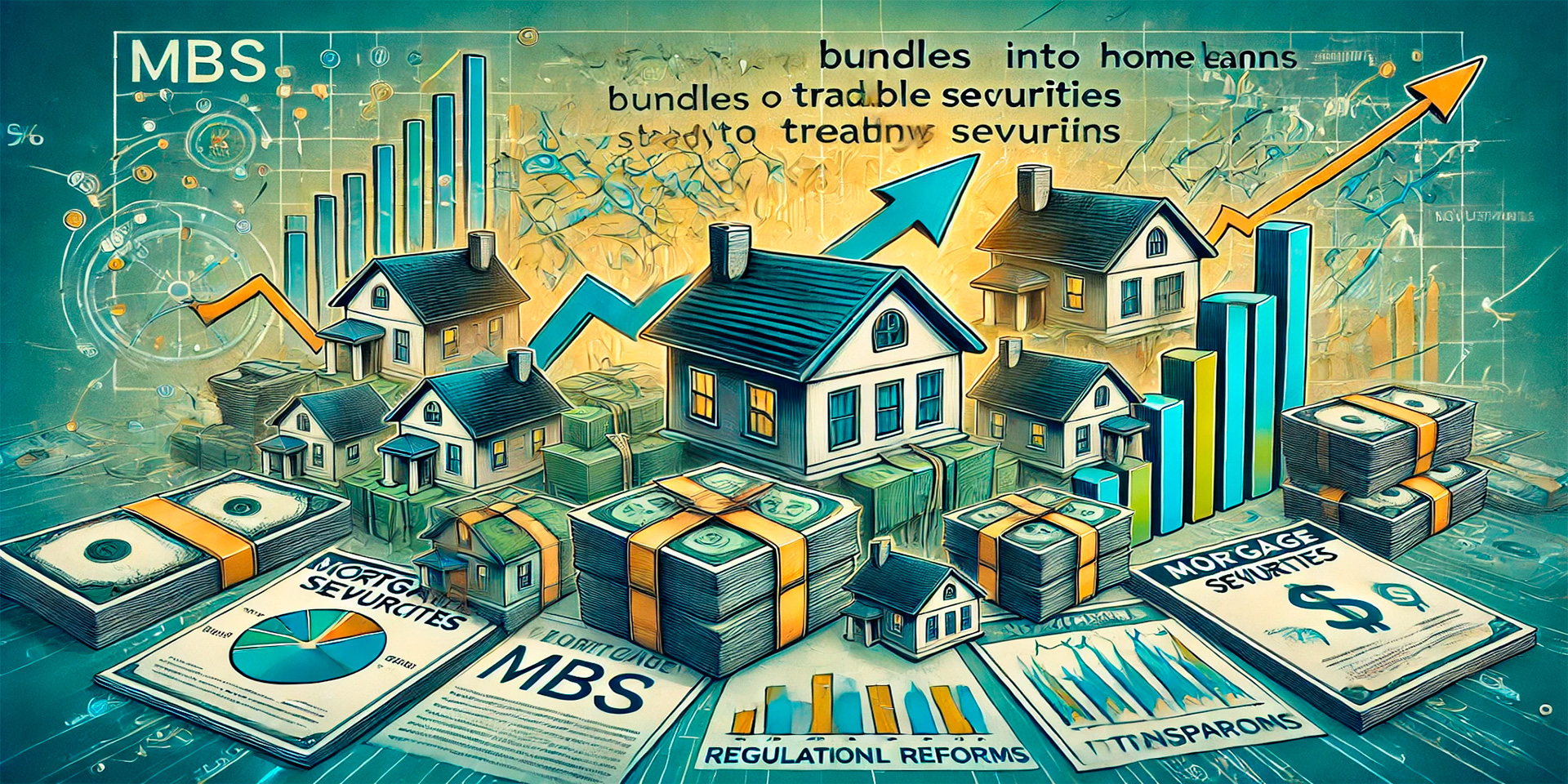Financial technology, or fintech, is transforming the global financial landscape by making financial services faster, more accessible, and more efficient. From mobile payments to blockchain and peer-to-peer lending, fintech is disrupting traditional banking, payment systems, lending, and even insurance. This innovation is reshaping how consumers and businesses manage money, invest, and interact with financial institutions, leading to the emergence of new investment opportunities in this rapidly growing sector.
As fintech continues to evolve, it offers investors the potential for substantial returns by capitalizing on the digital shift in finance. Companies driving advancements in payment processing, online lending, robo-advisory services, and cryptocurrency are at the forefront of this technological revolution, making fintech an attractive sector for those looking to invest in the future of finance.
Why Fintech Is Revolutionizing the Financial Industry
The rise of fintech is largely driven by the demand for more efficient and cost-effective financial services. Traditional banking models are often seen as slow, cumbersome, and expensive, while fintech offers a faster, more streamlined experience. By leveraging technology, fintech companies are improving accessibility to financial services for both businesses and consumers.
The pandemic accelerated the adoption of digital finance solutions, further highlighting the importance of fintech in today’s world. Whether it’s simplifying mobile payments, expanding access to credit, or creating seamless investment platforms, fintech is revolutionizing how we manage our finances.
Key Drivers of Fintech Growth
Several factors are fueling the rise of fintech, making it an increasingly important sector for investors. These include:
- Digital transformation: As more consumers and businesses shift to digital platforms, fintech is becoming essential for everyday financial transactions.
- Regulatory support: Many governments are encouraging innovation in the financial sector, creating favorable conditions for fintech startups.
- Increased demand for financial inclusion: Fintech companies are helping underserved populations gain access to financial services that were previously unavailable through traditional banking.
By addressing these evolving needs, fintech companies are capturing a growing share of the financial services market, presenting significant opportunities for investors.

Ways to Invest in Fintech
Investing in fintech involves identifying companies that are at the forefront of technological innovation in financial services. From well-established players to disruptive startups, there are several ways to gain exposure to this dynamic sector. Whether through direct stock purchases, exchange-traded funds (ETFs), or venture capital, investors can choose from a range of strategies to invest in the future of finance.
Invest in Fintech Stocks
One of the most direct ways to invest in fintech is by purchasing shares of publicly traded fintech companies. These companies offer a range of financial services, from payment processing to lending and investment management. Some of the biggest names in fintech include PayPal, Square (now Block), and SoFi, all of which are helping redefine how consumers and businesses manage money.
- PayPal: A global leader in digital payments, PayPal allows users to send and receive money securely online. The company’s growth has been driven by the increasing use of digital payments for e-commerce and peer-to-peer transactions.
- Square (Block): Originally known for its point-of-sale systems for small businesses, Square has expanded into mobile payments, peer-to-peer transfers through its Cash App, and cryptocurrency trading, positioning itself as a leader in fintech innovation.
- SoFi: A digital-first financial services company, SoFi offers everything from student loan refinancing and personal loans to investment products and credit cards. SoFi has built a strong customer base by offering a modern, user-friendly approach to personal finance.
By investing in fintech stocks, you can gain exposure to companies that are disrupting traditional financial services and driving the digital transformation of the industry.
Explore Fintech ETFs
For investors who want broader exposure to the fintech sector without having to pick individual stocks, fintech-focused exchange-traded funds (ETFs) offer a convenient and diversified option. These ETFs invest in a basket of fintech companies, allowing investors to spread their risk across multiple players in the sector.
- ARK Fintech Innovation ETF (ARKF): This ETF focuses on fintech companies that are leading innovations in mobile payments, digital wallets, blockchain technology, and peer-to-peer lending. ARKF includes a mix of established companies like Square and PayPal, along with smaller, emerging fintech startups.
- Global X Fintech ETF (FINX): FINX provides exposure to companies involved in financial technology, from online lending and mobile payments to insurance technology (insurtech). The ETF includes a diverse range of global fintech companies, offering investors broad access to the sector’s growth potential.
Fintech ETFs are a great way to invest in the broader fintech trend while minimizing the risk associated with individual stock picking.
Invest in Fintech Startups and Venture Capital
For investors willing to take on more risk, investing in fintech startups through venture capital or private equity can provide access to the next generation of fintech innovators. Fintech startups are often at the cutting edge of new technologies, including blockchain, AI-driven financial services, and decentralized finance (DeFi).
- Venture capital opportunities: Many fintech startups seek venture capital funding to scale their operations and bring new products to market. Investing in these companies at an early stage can offer the potential for significant returns if the startup succeeds.
- Crowdfunding platforms: Some fintech startups raise funds through crowdfunding platforms, allowing retail investors to participate in their growth. Platforms like SeedInvest and Republic offer opportunities to invest in promising fintech companies at early stages.
While investing in fintech startups can offer substantial upside, it is also highly speculative, as many startups face challenges in scaling and becoming profitable. Investors should carefully consider their risk tolerance before venturing into startup investments.

Key Sectors Within Fintech to Watch
Fintech encompasses a wide range of financial services, each with its own growth potential and investment opportunities. By focusing on specific sectors within fintech, investors can target areas of innovation that align with their financial goals and risk tolerance.
Digital Payments
The digital payments sector has seen explosive growth as consumers and businesses increasingly shift away from cash and toward digital transactions. Companies like PayPal, Square, and Stripe are leading this transformation by providing fast, secure, and convenient payment solutions.
- Mobile payments: Services like Apple Pay and Google Pay allow users to make payments directly from their smartphones, streamlining the checkout process and driving growth in mobile commerce.
- Peer-to-peer transfers: Platforms like Venmo and Cash App have made it easier than ever for individuals to send money to friends and family, contributing to the rise of peer-to-peer payments.
Investing in digital payments companies offers exposure to one of the most rapidly growing areas of fintech, driven by the increasing use of e-commerce and mobile technology.
Blockchain and Cryptocurrency
Blockchain technology is at the heart of many fintech innovations, particularly in the areas of decentralized finance (DeFi) and cryptocurrency. Blockchain enables secure, transparent, and decentralized transactions, making it an essential component of the fintech landscape.
- Cryptocurrency exchanges: Platforms like Coinbase and Binance allow users to buy, sell, and trade cryptocurrencies, providing access to the growing digital asset market.
- DeFi platforms: Decentralized finance platforms like Aave and Compound use blockchain to offer financial services such as lending, borrowing, and earning interest without the need for traditional banks.
The growth of cryptocurrency and blockchain-based solutions presents a high-risk, high-reward opportunity for investors interested in the future of decentralized finance.
Robo-Advisors and Automated Investment Platforms
Robo-advisors are digital platforms that use algorithms to provide automated investment management services. These platforms offer low-cost, personalized investment advice, making them popular with younger, tech-savvy investors.
- Betterment: One of the leading robo-advisors, Betterment offers personalized investment portfolios based on users’ financial goals and risk tolerance.
- Wealthfront: Wealthfront provides automated investment management along with financial planning tools, helping users optimize their savings and investments with minimal effort.
Robo-advisors are democratizing access to financial advice, making it easier for individuals to invest and grow their wealth without the need for traditional financial advisors.
Online Lending and Peer-to-Peer Lending
Fintech companies are also revolutionizing lending by offering faster, more accessible alternatives to traditional bank loans. Online lenders like LendingClub and Prosper use technology to streamline the lending process, making it easier for individuals and small businesses to secure loans.
- Peer-to-peer lending: Platforms like Prosper connect borrowers with individual investors, allowing people to lend money to others directly, bypassing traditional financial institutions.
- Online personal loans: Companies like SoFi and Upstart offer personal loans with competitive rates, catering to consumers who need fast access to credit without the bureaucracy of traditional banks.
The online lending sector is providing new opportunities for investors to earn returns by participating in the growing demand for alternative credit solutions.
Risks and Considerations When Investing in Fintech
While fintech offers significant growth potential, it also comes with certain risks that investors should be aware of. These include regulatory challenges, competition from traditional financial institutions, and the potential for market volatility.
Regulatory Uncertainty
The fintech industry operates in a highly regulated space, and changes in government regulations could impact the growth and profitability of fintech companies. For example, tighter regulations around cryptocurrency trading or peer-to-peer lending could limit the ability of fintech platforms to operate freely.
- Financial oversight: Governments may impose stricter oversight on fintech companies to ensure consumer protection and prevent fraud, which could increase operating costs for these companies.
- Cryptocurrency regulations: The regulatory environment for cryptocurrency is still evolving, and new laws could significantly affect the value of digital assets and the platforms that facilitate their trade.
Investors should keep a close eye on regulatory developments that could impact the fintech sector.
Competition from Traditional Financial Institutions
While fintech companies are disrupting traditional financial services, they also face competition from established banks and financial institutions that are adapting to the digital age. Many traditional banks are investing in their own fintech solutions or partnering with fintech companies to offer digital services.
- Bank partnerships with fintech: Some traditional banks are adopting fintech innovations by partnering with startups or developing their own digital platforms, increasing competition in the space.
- Adapting business models: As banks modernize their operations, fintech companies may face increased pressure to differentiate themselves and maintain their competitive edge.
Investors should assess how fintech companies are positioning themselves to compete with established financial institutions in a rapidly changing market.
Final Thoughts: Investing in the Future of Fintech
Fintech is at the forefront of the digital transformation in finance, offering investors the opportunity to participate in a rapidly growing and innovative sector. Whether through investing in established fintech giants, ETFs, or promising startups, there are numerous ways to gain exposure to the fintech revolution. However, it’s important to be aware of the risks involved, including regulatory challenges and competition from traditional financial institutions.
As fintech continues to disrupt and reshape the financial industry, the potential for long-term growth remains strong. By carefully selecting investments that align with your financial goals and risk tolerance, you can capitalize on the future of finance and be part of the digital transformation that is changing the way we handle money.




